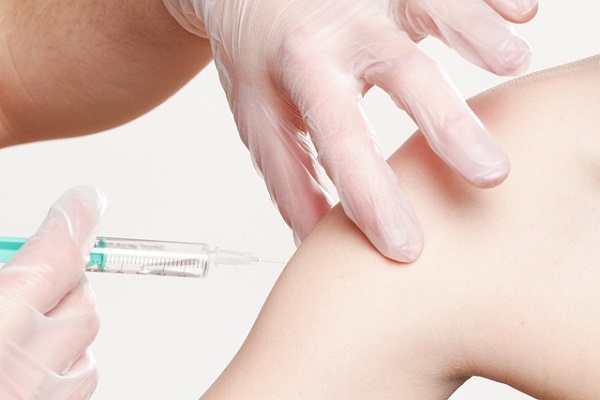
The Luxembourg Ministry of Health recently highlighted that 24 to 30 April is “European Immunization Week” (EIW).
Initiated by the World Health Organization (WHO), this week aims to raise public awareness of the importance of vaccination in the prevention of certain infectious diseases and the protection of the population. According to the Health Ministry, the WHO has recognised the effect of the COVID-19 pandemic in the global decline in immunisation rates and the need for children to catch up on vaccine doses they may have missed in 2023.
In Luxembourg, this week is an opportunity to focus on vaccination against the papillomavirus (or Human papillomavirus, HPV) and to recall the need to prevent this infection through vaccination. The Health Ministry noted that HPV produces precancerous lesions that can progress to cancers of the cervix, vulva, vagina, anus, penis, oropharynx and oral cavity and larynx. This is why all children between the ages of nine and fourteen, regardless of gender, are encouraged to get vaccinated. Beyond fifteen years of age, immunocompromised people and men who have sexual relations with other men are also encouraged to get vaccinated.
“It is essential to increase vaccination coverage against HPV. Girls, but also boys must be made aware of this infection and be vaccinated,” said Luxembourg’s Minister of Health, Paulette Lenert.
The human papillomavirus is a viral infection mainly transmitted sexually, through direct contact with an infected person. It is the most common sexually transmitted infection in the world and affects both women and men. In most cases, an HPV infection goes away on its own without causing noticeable symptoms or complications. However, the infection may become persistent and can cause genital and anal warts, or even cancers such as that of the cervix. The latter is the second most common cancer after breast cancer in women aged fifteen to 44 in the European Union. Each year, there are approximately 33,000 cases of cervical cancer and 15,000 deaths.
The Ministry of Health recalled that vaccinating girls and boys against the HPV virus can prevent infections and associated diseases. According to the WHO, vaccination protects against the types of HPV which cause 71 to 90% of cancers of the cervix and against 90% of genital warts.
In Luxembourg, since 2007, the High Council for Infectious Diseases (CSMI) has recommended vaccination against the papillomavirus for girls. This recommendation was adapted in 2018 by offering HPV vaccination universally to girls and boys.
In 2022, the latest CSMI recommendations for HPV vaccination concern: universally, girls and boys aged nine to fourteen inclusive, with two doses of vaccine spaced six months apart; in a targeted manner, from the age of fifteen, in immunocompromised young men and women and men who have sex with men, with three doses of vaccine administered at zero, two and six months.
Vaccination is offered free of charge for these categories of people listed above.
Doctors (general practitioners, paediatricians and gynaecologists) provide information on HPV vaccination and are available in case of questions.
In order to stay up to date on vaccinations, it is recommended to consult the vaccination calendar available on sante.lu or on one’s vaccination record. Recently, the implementation of the CVE electronic vaccination record helps to keep one's vaccination status up to date. The CVE is a system that digitally records patient vaccinations. In particular, it allows people to consult their vaccinations and receive notifications for vaccination reminders. It is recommended to discuss this with one’s attending physician in order to subscribe to the CVE.








